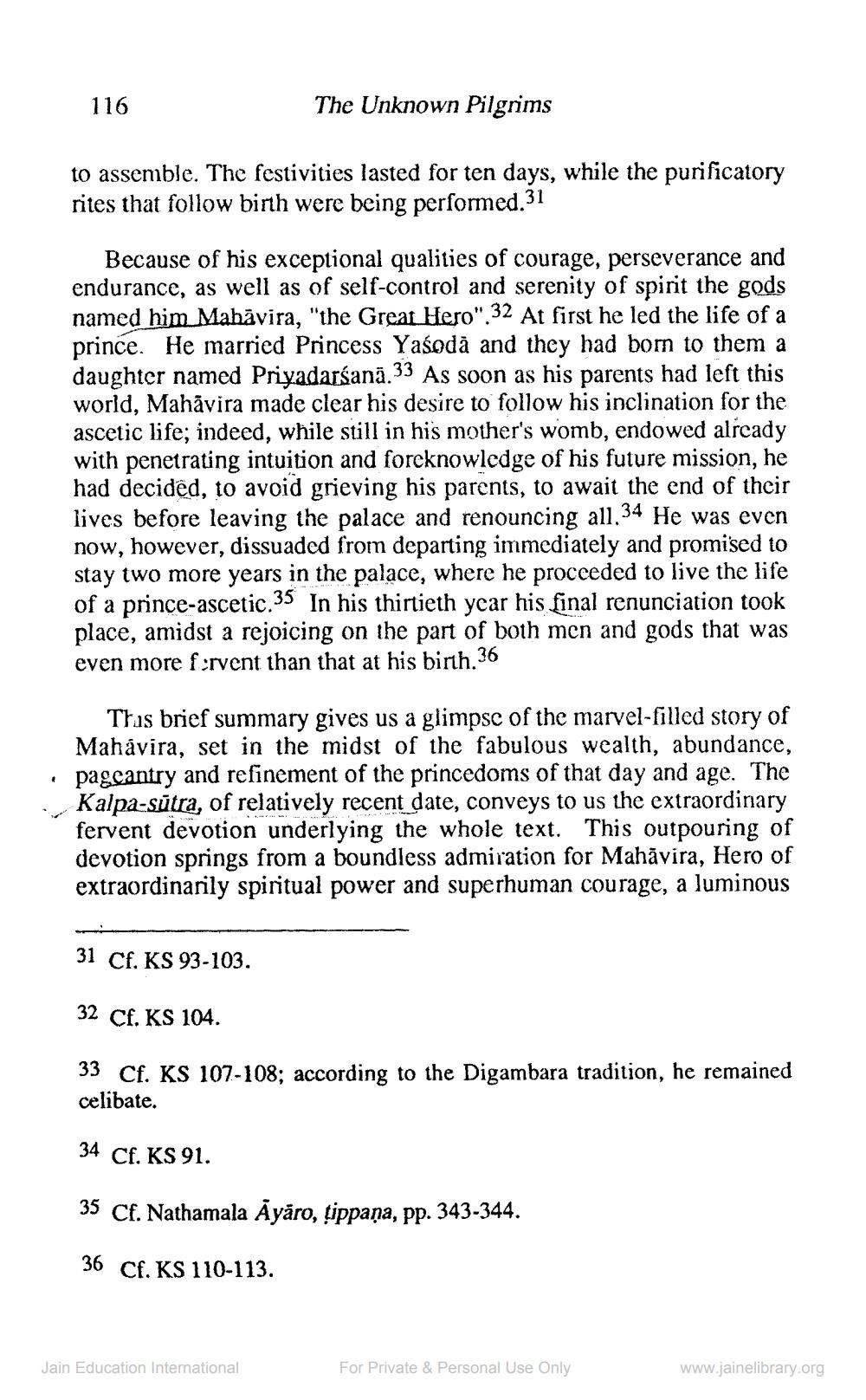________________
116
The Unknown Pilgrims
to assemble. The festivities lasted for ten days, while the purificatory rites that follow binh were being performed.31
Because of his exceptional qualities of courage, perseverance and endurance, as well as of self-control and serenity of spirit the gods named him Mahāvira, "the Great Hero". 32 At first he led the life of a prince. He married Princess Yasodā and they had born to them a daughter named Priyadarśanā.33 As soon as his parents had left this world, Mahāvira made clear his desire to follow his inclination for the ascetic life; indeed, while still in his mother's womb, endowed already with penetrating intuition and foreknowledge of his future mission, he had decided, to avoid grieving his parents, to await the end of their lives before leaving the palace and renouncing all.34 He was even now, however, dissuaded from departing immediately and promised to stay two more years in the palace, where he proceeded to live the life of a prince-ascetic.35 In his thirtieth year his final renunciation took place, amidst a rejoicing on the part of both men and gods that was even more f:rvent than that at his birth.36
Thas brief summary gives us a glimpse of the marvel-filled story of Mahavira, set in the midst of the fabulous wealth, abundance, pageantry and refinement of the princedoms of that day and age. The Kalpa-sūtra, of relatively recent date, conveys to us the extraordinary fervent devotion underlying the whole text. This outpouring of devotion springs from a boundless admiration for Mahāvira, Hero of extraordinarily spiritual power and superhuman courage, a luminous
31 Cf. KS 93-103.
32 Cf. KS 104.
33 Cf. KS 107-108; according to the Digambara tradition, he remained celibate.
34 Cf. KS 91.
35 Cf. Nathamala Ayāro, tippaņa, pp. 343-344.
36 Cf. KS 110-113.
Jain Education International
For Private & Personal Use Only
www.jainelibrary.org




